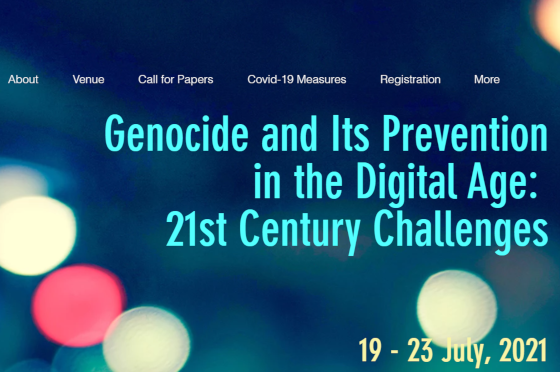As the field of genocide studies has grown and diversified in the 21st century, the impact of digital technology has taken on increasing importance.
From the digitalization of archives that document genocide atrocities to using this technology to capture and prosecute perpetrators, the landscape of interdisciplinary genocide studies and genocide prevention is rapidly changing.
At the same time, the rise of social media and the world wide web has facilitated the propagation of hate and dissemination of genocidal and related ideologies.
In this context, the international conference “Genocide and its Prevention in the Digital Age. 21st Century Challenges” will occur. It has been organized by the International Association of Genocide Scholars and the faculty of Law- University of Barcelona, with the ICIP as a local partner.
The conference was programmed to occur in Barcelona from 19 to 23 July, but due to the Covid-19 measures, it will be an all-virtual conference.

The ICIP, with the collaboration of the Catalan Agency for Development Cooperation, is the organizer of one of the sessions, focused on peacebuilding in Colombia.
“50 years of armed conflict in Colombia: how the diaspora builds peace and memory” is the panel that will occur on Monday 19, at 3.30 pm.
The participants are Alejandro Valencia Villa, commissioner of the Commission for the Clarification of Truth, Coexistence and Non-repetition in Colombia; Dorys Ardila, member of the Truth Commission support group in Catalonia; and Adriana Quintero, member of the Europe Group of family members of disappeared people in Colombia.
The debate will be moderated by Maria Fanlo, a member of the “Memory, Coexistence and Reconciliation programme”, one of ICIP’s field of work.
Previous registration is required to participate at the conference.
